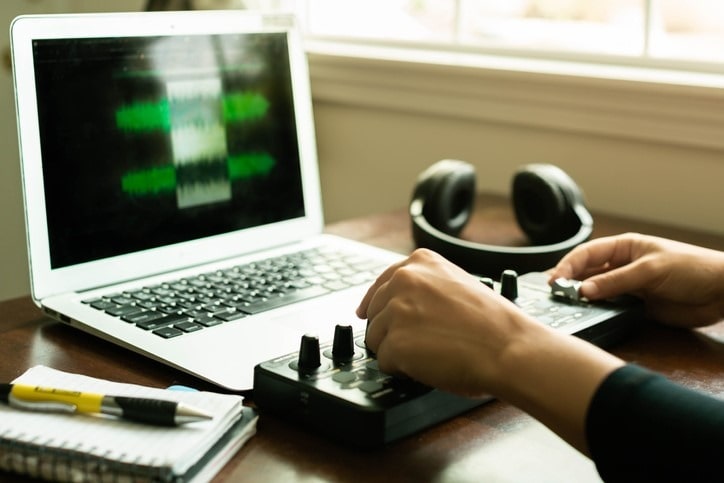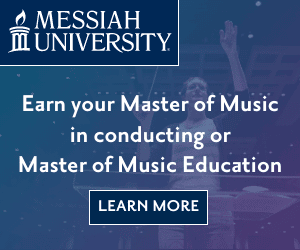/ News Posts / Reflective Music Teaching
Reflective Music Teaching: Ideas for Early-Career Teachers
By NAfME Members Erik Piazza and John Mills
The start of a music teacher’s career—including the transition from college to the classroom—is perhaps the most exciting time of their professional life. Early-career teachers are likely to rely on timeless words of wisdom: set appropriate expectations, learn your students’ names and stories, borrow from other teachers, be yourself, and be organized! However, it is also important for teachers to uncover their students’ musical interests and goals, share their passion for music, and be careful when defining “excellence.” To do so requires careful consideration of underlying assumptions within our profession, as well as critical self-reflection.
Unpacking Your Assumptions
Early-career music teachers likely enter the profession with a philosophy built on collegiate and personal music-making, as well as observations of other music teachers. Commit early in your career to reflecting on your lived experiences and realize they do not necessarily need to be replicated in your classroom.
“Excellence” in music learning is defined differently in every setting. You do not need to emulate other programs or prioritize historically-celebrated, white male composers. While your formative experiences are invaluable, reflect back on them and decide what is most appropriate, inclusive, and equitable for your current students.
“Excellence” in music teaching is also subjective. Instead of thinking you always need to be an expert in something before you teach it, remember that students also enjoy when you explore alongside them, make the same mistakes they do, and come away with a similar experience. This practice is highly authentic and engaging.
Critical Self-Reflection
It is important to reflect on your successes and challenges over time. Keeping a journal of your own thoughts with feedback from your students will allow you to critically evaluate your teaching. As you reflect on the praxial and philosophical changes you want to make, it is important to stay informed as you continue to learn and grow as a teacher and musician.
There are myriad resources available to music teachers who would seek support. Online resources (e.g., Google Scholar, ERIC, JSTOR, ProQuest), practitioner magazines (e.g., Teaching Music, General Music Today), and research journals (e.g., Music Educators Journal, Journal of Research in Music Education, UPDATE: Applications of Research in Music Education) may inspire change. These resources can help you reflect, broaden your knowledge of student-centered teaching, and provide the tools to allow you to research and publish your own ideas.
Relating Curriculum to Community
Take an interest in your students’ interests by connecting lessons with the music and music-making they experience outside of school. Use your deep musical knowledge to connect musical genres with plenty of examples. Explore and discover how a variety of music is made, learned, and taught. This will help build trust between your and your student’s musical lives.
Invite students to ask questions about how your lessons relate to their lives. Encourage them to agree and disagree with your musical choices. Plan new activities with your students’ musical lives in mind.
As a reflective teacher, there will be aspects of your job you want to change. Establish respectful, considerate relationships with colleagues, administrators, parents, community members, and students first. Then, you will have an easier time making curricular changes.
Creative Musical Activities
Creative musical activities (i.e., improvising, composing, arranging, and producing) can support reflective music teaching by providing you with opportunities to practicalize your ideas with students. Whether or not you feel prepared to teach these activities, you are eminently qualified to engage students in creativity.
Technology has tremendous potential to meet the needs of students marginalized in traditional music settings—especially given our current virtual learning environment! Technology can unlock a student’s creative potential and provide a platform on which to share creative expression. Have students use a free digital audio workstation to record and remix tracks of existing or original music. Start small and ask your students for ideas, provide diverse musical options, and avoid the urge to grade everything.
Conclusion
Your musical and educational experiences empower you to reflect on “the way it’s always been done,” teach with an open mind, and connect with the community you serve. Trust your own musicianship, especially if the music you enjoy is different from that of your students.
As you reflect on your own teaching practices and ideas, you will inevitably find ways to institute meaningful change. Your lesson plans should evolve to represent the ideas you find most valuable and relatable to your students. Give students the space and tools to explore how their favorite music is produced, and guide them as they make their own musical decisions.
“As you all learn together, your reflective practice will bring meaning to your curriculum and demonstrate to your students how much you care about them.”
Celebrate the musical diversity of each of your students. As you all learn together, your reflective practice will bring meaning to your curriculum and demonstrate to your students how much you care about them.
About the authors:
 NAfME member Erik Piazza has taught middle school, high school, and collegiate students over the course of his career. He currently teaches in Webster, New York, and is a PhD candidate (ABD) in music education at the Eastman School of Music.
NAfME member Erik Piazza has taught middle school, high school, and collegiate students over the course of his career. He currently teaches in Webster, New York, and is a PhD candidate (ABD) in music education at the Eastman School of Music.
www.erikspiazza.com
NAfME member John Mills has taught music in many settings, including public schools, academic conferences, and community groups. He currently teaches high school classes in music technology, piano, and jazz in Virginia.
classes in music technology, piano, and jazz in Virginia.
www.mrjohnmills.com
Erik and John are co-authors of Reflective Music Teaching: Ideas for Early-Career Music Teachers in which they present practical strategies for revising “the way it’s always been done.” Erik and John are also co-founders and senior editors at Low Down Publishing.
Did this blog spur new ideas for your music program? Share them on Amplify! Interested in reprinting this article? Please review the reprint guidelines.
The National Association for Music Education (NAfME) provides a number of forums for the sharing of information and opinion, including blogs and postings on our website, articles and columns in our magazines and journals, and postings to our Amplify member portal. Unless specifically noted, the views expressed in these media do not necessarily represent the policy or views of the Association, its officers, or its employees.
February 22, 2021. © National Association for Music Education (NAfME.org)
Published Date
February 22, 2021
Category
- Collegiate
- Diversity, Equity, Inclusion, and Access (DEIA)
- Music Education Profession
- Music Educator Workforce
Copyright
February 22, 2021. © National Association for Music Education (NAfME.org)






